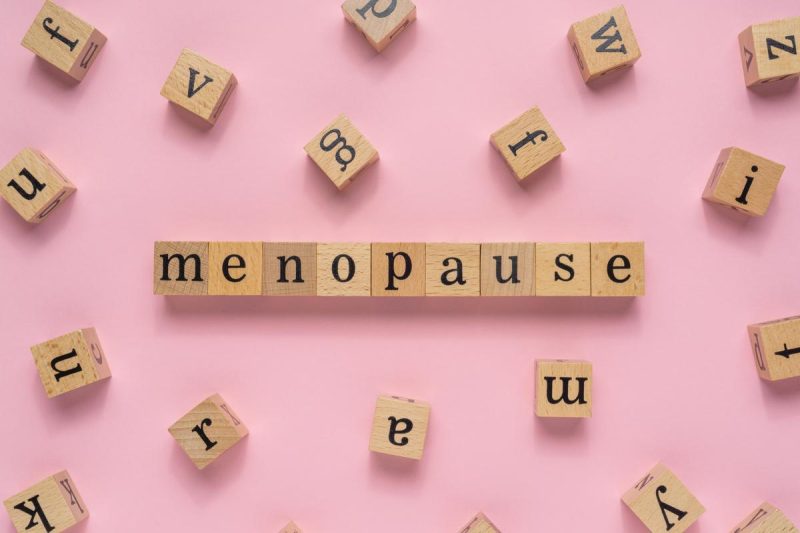Menopause signifies the natural decline of female reproductive hormone production, marking the end of menstrual cycles. Typically occurring in a woman’s 40s or 50s, this transition is accompanied by various common symptoms such as hot flashes, chills, night sweats, vaginal dryness, irregular periods, mood swings, decreased libido, weight gain, poor sleep, bone loss, headaches, anxiety, and depression.
As Menopause is a natural process, treatment primarily revolves around managing its symptoms. While pharmaceutical drugs are available, many women are concerned about potential side effects, leading them to explore alternative therapies in conjunction with or as an alternative to conventional treatments.
Before incorporating any supplements into your routine, it is essential to consult your healthcare provider to ensure their safety and effectiveness for your specific situation.
Ten supplements for Menopause
Black Cohosh: Help for Hot Flashes?
Black cohosh stands out as an extensively researched supplement for Menopause, derived from the root of the North American black cohosh plant. Numerous studies have highlighted its efficacy, particularly in alleviating vasomotor symptoms like hot flashes, compared to placebo treatments.
However, there are also conflicting findings from some studies that fail to demonstrate significant benefits. It is crucial to exercise caution, as individuals with liver issues should avoid its use.
Flaxseed: Easing Night Sweats
Flaxseed and its oil have potential benefits for women experiencing mild menopause symptoms. These seeds are rich in lignans, compounds known for their ability to help regulate female hormones.
While some studies suggest their positive impact on symptom relief, particularly concerning hormone balance, not all research has consistently shown significant benefits, especially in alleviating vasomotor symptoms such as night sweats.
Calcium: Preventing Bone Loss
After Menopause, bone loss can become a significant concern due to the decline in hormone levels. Ensuring an adequate calcium intake is crucial to maintain bone health.
Women below the age of 51 require 1,000 milligrams of calcium daily, while those aged 51 and older need 1,200 milligrams.
It’s advisable to obtain calcium primarily from dietary sources for optimal absorption. If supplements are necessary to meet the requirements, it’s best to take smaller doses with food throughout the day, limiting each dose to no more than 500 mg to enhance absorption.
Red Clover: Popular but Unproven
Red clover is popular among women seeking relief from menopause symptoms due to its natural plant estrogens. However, the research findings on its effectiveness have yet to be conclusive.
In the past, there were concerns about potential risks, including an increased risk of uterine cancer. Nevertheless, recent studies over three months have not shown any significant rise in uterine cancer cases among women using red clover.
Nonetheless, addressing any concerns with your doctor is essential to make informed decisions about its usage.
Vitamin D: Get Some Sun
Vitamin D is a crucial nutrient for bone health, equally essential as calcium. The body requires vitamin D to absorb calcium effectively. A daily intake of 600 IU is recommended for most adults, while those aged 71 and older should aim for 800 IU per day.
Vitamin D can be obtained from various food sources and supplements, but sunlight exposure is also a natural provider.
While it’s true that the body synthesizes vitamin D when exposed to the sun, it’s essential to be cautious, as even brief exposure to sunlight can lead to skin damage.
Therefore, it is advisable to prioritize obtaining vitamin D from food sources and consider supplements if your dietary intake is insufficient.
Wild Yam: Alternative to Hormones
Natural supplements and creams derived from specific species of wild yam have gained popularity as alternative options for menopausal hormone therapy.
These yams contain natural compounds that bear resemblance to estrogen and progesterone, although their effectiveness in humans remains uncertain.
Despite their potential, clinical studies have not provided concrete evidence that these wild yam products effectively alleviate menopause symptoms.
Ginseng: Mood Booster
Some research studies have indicated that various types of ginseng could potentially enhance the overall quality of life during Menopause. Ginseng has demonstrated mood-boosting properties and the ability to improve sleep patterns.
However, current research has not shown conclusive evidence that either American or Korean ginseng effectively alleviates physical menopausal symptoms like hot flashes.
John’s Wort: Control Mood Swings
St. John’s wort is renowned for its efficacy in treating mild depression, but recent findings suggest it may offer additional advantages for women experiencing Menopause.
When combined with black cohosh, emerging evidence indicates that St. John’s wort could potentially enhance mood and alleviate mood swings associated with Menopause.
DHEA: Hormone of Youth
As we age, the natural levels of the DHEA hormone in our bodies decrease, especially after age 30. Some limited studies have suggested that DHEA supplements could relieve menopause symptoms like low libido and hot flashes.
However, the evidence remains inconclusive, as other studies have shown no apparent benefit. Furthermore, there are concerns that prolonged usage or high doses of DHEA might be associated with an increased risk of breast cancer.
It’s important to discuss the potential risks and benefits of DHEA supplementation with your healthcare provider.
Dong Quai: Empress of the Herbs
Dong Quai has been a prominent component in Chinese medicine for women’s health conditions for centuries. However, modern research still needs substantial evidence supporting its purported benefits.
A specific study investigating its impact on menopausal hot flashes failed to show any significant advantages.
When used long-term, it is essential to exercise caution when considering Dong Quai, as it may pose certain risks, including a potential association with cancer.
Before incorporating Dong quai into your health regimen, please consult a healthcare professional to ensure it is safe for your specific circumstances.
conclusion
Consulting your doctor or pharmacist regarding any supplements you are using is crucial. Keep in mind these essential points:
All supplements carry the possibility of side effects. Supplements and herbs may interact with certain medications you are taking, potentially enhancing or inhibiting their impact or even leading to other complications.
Be aware that certain herbs may trigger allergic reactions in some individuals.







1 comment